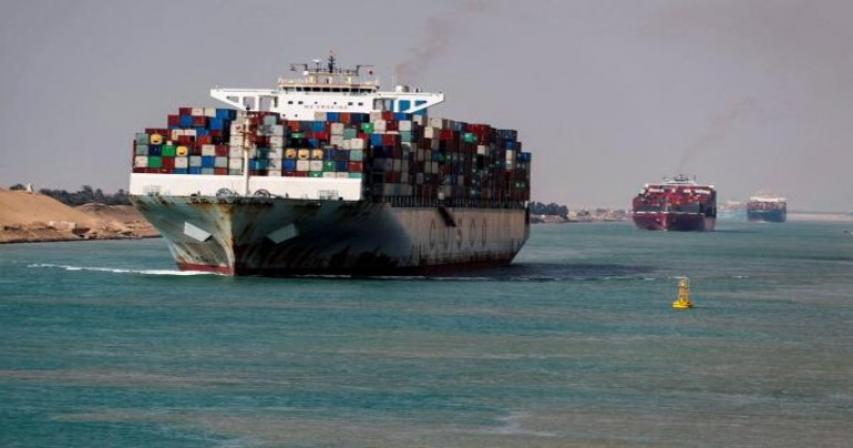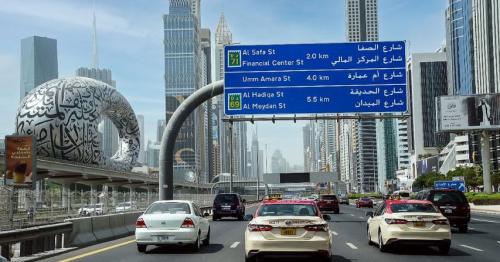Will GCC get caught in a global trade war crossfire?

Economists and market analysts warn GCC countries may become entangled in President Donald Trump's expanding global trade war.
They warned that GCC countries could face major disruption since they depend heavily on trade and foreign investments amidst rising global tensions.
The tariffs imposed by Trump which include 25 percent on imports from Canada and Mexico and 10 percent on imports from China will create extensive consequences. The trade flow disruptions faced by GCC countries will affect their oil exports along with the importation of crucial industrial goods.
According to Capital Economics new analysis findings reveal both the direct effects of these tariffs and their wider ramifications on the world trade system. These tariffs emerged from the administration's plan to protect American jobs and shrink the trade deficit but might result in higher prices for basic materials like steel and aluminum. Key infrastructure projects in Saudi Arabia and the UAE that support their economic diversification efforts may experience delays due to these developments.
GCC countries face immediate challenges from U.S. tariffs while also preparing for possible retaliatory actions from impacted nations including China and the European Union. These reciprocal trade retaliations have the potential to introduce additional complexities into international trade mechanisms.
Because of its established trade connections with the US and China the GCC could face difficulties in managing its economic relationships during trade disputes between these partners. The authors argue reduced U.S. exports to China will lead to lower oil and gas demand from GCC countries which could impact their revenues and economic stability.
The construction and real estate industries along with manufacturing stand as the sectors most exposed to damage from this trade war. GCC countries are channeling significant resources into infrastructure projects to fulfill their Vision 2030 goals. The ambitious Saudi NEOM project faces potential delays and budget issues because of increased raw material costs provoked by US tariffs.
While serving as an essential component for GCC economic diversification plans the manufacturing sector could face negative impacts. Higher production expenses may discourage foreign investment while simultaneously hampering industrial growth and job development. The economies within the GCC region experience sensitivity to worldwide changes in oil and gas demand.
Experts predict that reduced US exports to China will lead to decreased oil demand which will negatively affect revenue streams for GCC countries. The instability of oil prices means that any decrease could pressure national budgets while slowing economic growth.
President Trump's tariffs on leading crude oil suppliers introduce new obstacles for Opec+ which threaten to disrupt global oil demand and production systems. The group could end its production cuts to regulate market stability but the tariffs affecting Canada and Mexico may require these nations to reroute their crude supplies which would affect U.S. refineries and lead to possible price increases says Mukesh Sahdev from Rystad Energy.
Some experts believe GCC states have the opportunity to speed up their economic diversification despite the trade war challenges. The GCC nations could lessen their dependence on established trade partners by developing domestic industries and forging new economic connections with emerging markets throughout Asia and Africa.
The trade war represents major obstacles for GCC economies but also creates important opportunities for regional diversification and resilience that will alter economic dynamics for the future.
Capital Economics identifies that a trade war will cause both an increase in imported goods prices and disruption of established supply chains. As the cost of raw materials increases companies transfer these expenses to customers which results in inflation. The automotive and construction sectors which depend on steel and aluminium materials might experience reduced profits which could lead to job cuts and slow economic growth.
Trump's tariffs directly resulted in affected nations implementing retaliatory measures. China has implemented tariffs on U.S. products which target agricultural goods as part of their retaliation. The progressive increase in trade barriers between nations creates a dangerous possibility of an extensive trade war that experts believe will bring serious economic effects to both countries involved.
Capital Economics forecasts that enduring trade disputes between nations would result in a major deceleration of worldwide economic growth. The World Trade Organisation alerts that continued tariff imposition by countries will significantly reduce global trade volumes and disrupt both U.S. trade and export-dependent economies.






Comments